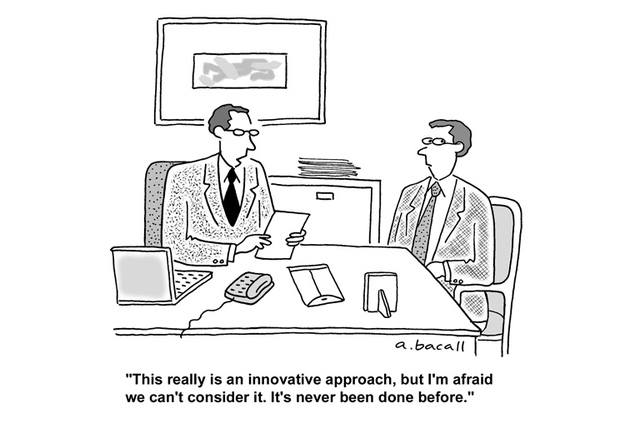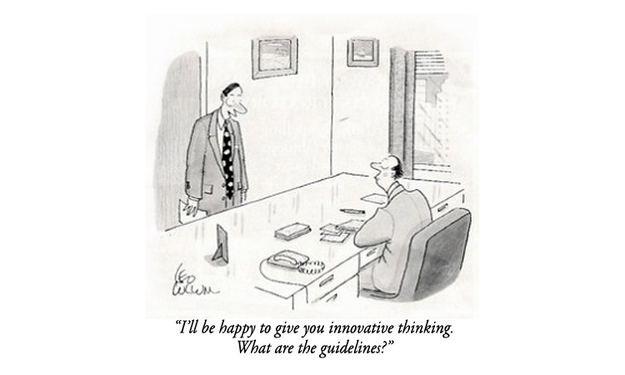Save 50% on a 3-month Digiday+ membership. Ends Dec 5.

Mark Duffy has written the Copyranter blog for 10 years and is a freelancing copywriter with 20-plus years of experience. His hockey wrist shot is better than yours.
It’s the most wonderful time of the year: Everybody’s oohing and aahing and sighing and crying over the overproduced, overrated smarmy Christmas ad garbage that sells crazy-eyed cultish consumerism rather than products.
But what’s coming next year, creatively speaking? Oreo endorses Black Lives Matter? Axe promotes rape awareness on college campuses? Donald Trump beheads an ISIS fighter during an infomercial on CNN?
Who knows. Here’s what I know is coming, without a doubt: worse advertising than in 2015. And 2015 produced some pretty horrible ads.
The creative devolution started about 20 years ago, not coincidently around the beginning of the digital revolution.
Today, there are no more Mad Men in advertising. Sure, there are some brave Mildly Insensible Men around at the few remaining mildly creative independent shops. But the new Mad Men are Ad Tech Men. And these men (yes, it’s still virtually all men) are not at all mad, not visionary, not risk takers.
We need a new name for them: Let’s call them Nad Men, because they have no balls. (Play along, it’s ironic, and it rhymes.)
Ad position: web_incontent_pos1

Mark Zuckerberg and Larry Page are the two biggest ad tech gurus in the world who run the two biggest advertising companies in the world. But Zuckerberg wouldn’t know a good creative ad if it punched him in his face, and Page doesn’t have a creative gray hair on his head.
Yet the media begs them to tell us, the plebes, what makes a “good” ad. First, here’s Page:
“(T)he industry needs to do better at producing ads that are less annoying and that are quicker to load, and all those things. And I think we need to do a better job of that as an industry. We’ve been trying to pioneer that. I think search ads are very good in that sense, and, in fact, a lot of places where ads can [be] block[ed], search ads do not get blocked because they are really useful. So I think that’s a really good example of what we’re trying to do.”
“Search” ads are useful, I guess if you know precisely what you’re looking for. They’re also very no-tech, exactly mimicking newspaper classified ads. How innovative.
Next, here’s a December 2014 Zuckerberg quote about the industry:
“A frustration I have is that a lot of people increasingly seem to equate an advertising business model with somehow being out of alignment with your customers. I think it’s the most ridiculous concept. What, you think because you’re paying Apple that you’re somehow in alignment with them? If you were in alignment with them, then they’d make their products a lot cheaper!”
I’m no Apple fanboy or a fan of its autoerotic arrogant advertising, but that statement makes zero sense and shows how little (zilch) The Zuck understands about advertising and branding.

Speaking of branding: Brands, are you ecstatic that you have 10,000, 100,000, or even 1 million Facebook fans? Do you understand exactly how many of those ”fans” “engage” with or even occasionally look at your page? It’s somewhere in the neighborhood of 3 percent. And that’s an optimistic figure.
Ad position: web_incontent_pos2
Yet more and more brand budgets are going to the scam that is social media. Companies increasing can’t or won’t spend money on a TV ad or a billboard campaign. Yet! If they ran a cracking, brilliant TV spot or erected an astounding billboard next year, it would absolutely find its way to the digital realm where it would be engaged with and shared monumentally. This phenomenon already materializes occasionally. And yes, there are still plenty of talented creatives out here who could execute these for you.
Unfortunately, the Nad Men have been very successful at convincing CMOs and such to become figurative eunuchs, producing more unoriginal risk-free social and native stuff that in the long run is completely useless because it doesn’t work and it’s immediately forgotten by the next day.

Comics via: Stock Logos.
More in Marketing

Ulta, Best Buy and Adidas dominate AI holiday shopping mentions
The brands that are seeing the biggest boost from this shift in consumer behavior are some of the biggest retailers.

U.K. retailer Boots leads brand efforts to invest in ad creative’s data layer
For media dollars to make an impact, brands need ad creative that actually hits. More CMOs are investing in pre- and post-flight measurement.
Ad position: web_bfu
